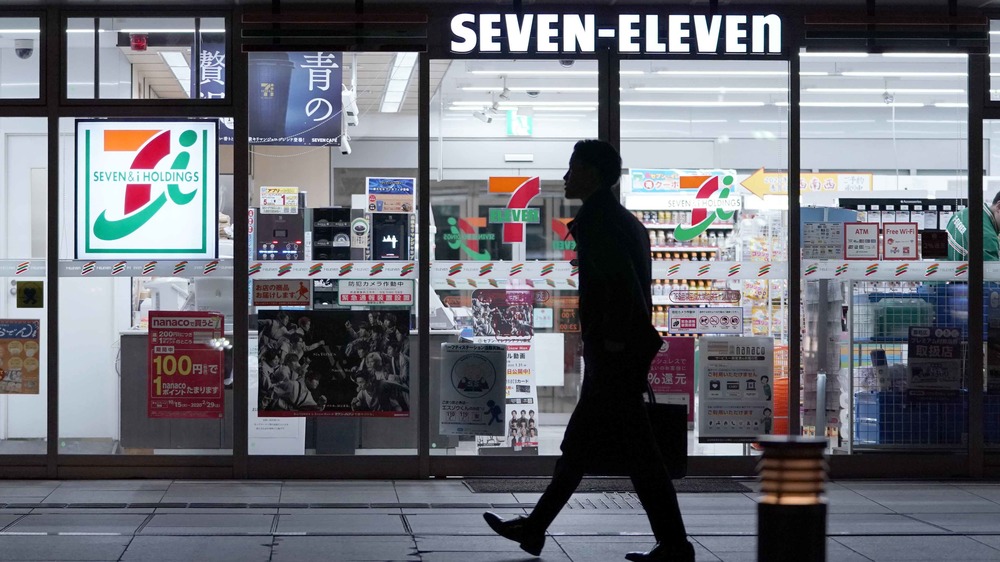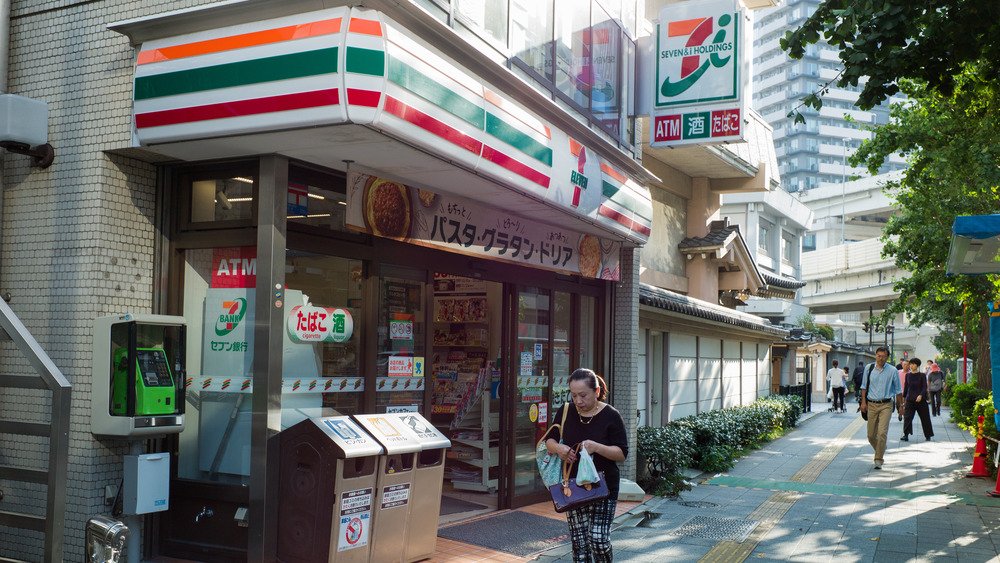This Is How Much It Costs To Open A 7-Eleven
With 7-Eleven's ubiquity being what it is, one may be tempted by the franchising opportunities the brand offers. After all, with so many outlets it has to be a good bet.
According to Franchise Gator, acquiring a 7-Eleven franchise is less demanding than most. Depending on circumstances, you need to have at hand $50,000 to $150,000 in liquid capital and a net worth of at least $150,000.
On its Financials page for the Franchise Information section of its website, 7-Eleven lists the various things you would need to pay for upfront. Most, such as the franchise fee, the business license, and the permits vary by state, but it offers estimated prices of $1,000 for supplies, $20,000 for a down payment on the store's inventory, and $2,500 for the cash register fund. Franchise Gator gives estimated ranges for the Franchise Fee and Total investment of between $0 and $1,000,000 and $37,200 and $1,635,200 respectively.
If the number of zeroes involved with the cost concerns you, you can also apply for an internal financing program 7-Eleven offers that covers up to 65 percent of the initial franchise fee, according to its Financials page. Other ways 7-Eleven corporate helps franchisees, it says on its page for single units, is that gross profits are shared between 7-Eleven and its franchisees, corporate pays for utilities, pays for rent and real estate taxes, and checks in weekly to help maximize store efforts. It requires a lot, but it is no where near as prohibitive as McDonald's.
7-Eleven is ready for the future
The brand of 7-Eleven can strike one as tired. A Marker article from January that argues the coronavirus pandemic has set the chain to supercharge begins by acknowledging the connection in the American imagination between 7-Eleven and the bootleg Kwik-E-Mart from The Simpsons. However, even as the pandemic continued ravaging in August, as Dallas News reported, 7-Eleven stayed focused on expansion, purchasing a new location from the Marathon Petroleum Corporation.
The piece ends, however, on the same important point the Marker article makes, that is that during the pandemic, deliveries for 7-Eleven had exploded in popularity, causing a shift in priorities."You can be at the park with your kids or grandkids and want Gatorade and snacks and we can deliver it in 30 minutes. That's a big deal," Joe DePinto, 7-Eleven CEO told Dallas News, said. "Now we'll have 14,000 stores to make deliveries from."
Six months later, the Marker piece claims that 90 percent of 7-Eleven's presence in the United States is in delivery fleets, with partnerships announced with all of the big name delivery apps.
On another pandemic note, The Korea Herald reported two weeks ago that offline retail sales, including those with 7-Eleven rose during the various lockdowns as consumers searched for ways to gather their groceries without straying too far from home and into large crowds.
Between deliveries and the trend back to convenience stores, 7-Eleven seems set to at least grapple with a future beyond its Kwik-E-Mart image.

